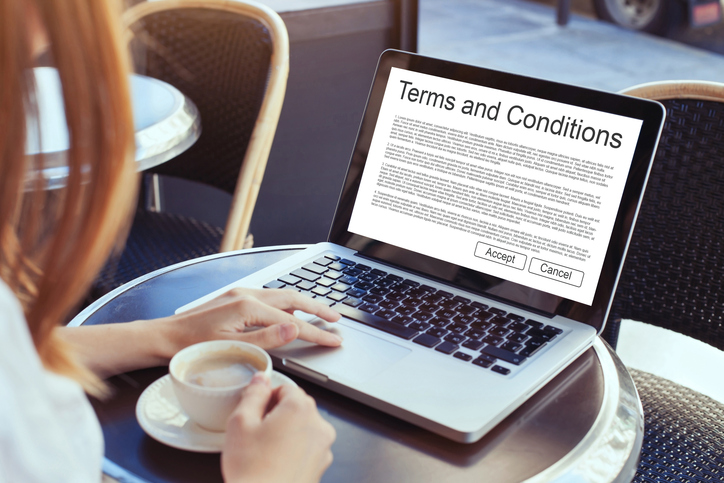
We’ve all seen it before; the pop ups of necessary security updates, the horror stories of leaked celebrity pictures by hackers and the infamously long document of God-knows-what followed by “I agree to the following terms and conditions”. These are ever present in our rapidly progressing technological society and continue to characterise the interaction of society with technological information, especially for the younger generation.
As a high school student and member of the early half of GenZ, I wasn’t raised under the protective barrier of informational isolation formed by the limited technological advances of the generations that preceded me. My grade has had the unique ability to watch technology morph before our eyes. Elementary school was a time of computer typing class, projectors and the slow encroachment of Smart Boards as the years progressed.
It seems like every year of middle school I had a different policy regarding phone usage and school districts seemed to be playing catch up to a wave of pop and technological culture flooding students. As I progressed through high school, faculty encouraged phone usage in the classroom for research and used our ability to access a mass amount of information quickly as an advantage.
Every year of my education I watched the transformation of technology from flip phones and overhead projectors in elementary school to smart phones and smartboards in high school.
What my computer class in elementary school and my proceeding technology education has failed to teach me are answers to the questions “what is privacy in a world of constant connection?” and “how do we protect ourselves and stay connected?”.
What is privacy in a world of constant connections? To answer this we first need to define privacy, a notoriously ambiguous object of contestation. The reason privacy is difficult to define lies in part in its subjective nature.
Defining privacy relies heavily on personal preferences and values, among other individualistic factors. What is private and not private leaves the debate of cyber security in murky waters. This coupled with government, private and corporate fascination in the inner workings of individuals minds and the ever expanding ways information can be stored and shared has often left privacy as an afterthought.
A glance at the informational open philosophy of GenZ further explains the encroachment of commercial information use on the once dormant cybersphere, specifically in regard to social media. I was four years old when Facebook began and, though it took a couple years to develop into the Facebook we all know and love (or not) today, it has undeniable shaped the technological world as well as my generations perception of privacy. “Friends” now meant the close group of people we connect to on a personal level and the dozens, hundreds, thousands of people we barely know.
The contradictory dual definitions symbolize the pull of society to familiarize technological situations that had never existed before. Our generation was the guinea pig that tested the effects of being raised in a world of rapidly expanding connection and, as a result, optional privacy on the grand scale.
The push to familiarize social media leads to challenges in differentiating meaningful relationships and frivolous online “relationships”. We had to learn the difference between the girl we’ve known since first grade and sunshinegirl56, especially in regards to information sharing.
But in the naive minds of children, dangers can be overlooked and private information can quickly become unprivate. While we were taught to not talk to strangers online, the familiarity of the option to talk to strangers online and the prevalence of it often left the dangers of a lack of privacy dulled.
This has created a generation that is numb to the importance of privacy beyond the now obvious dangers of telling a stranger personal information. We learned to ignore the slightly icky feeling that comes from ads marketing products you just searched for.
We rapidly scroll through the terms and conditions pages and quickly tap the agree button, always with annoyance that it took thirty seconds out of our day. We conditioned ourselves to see privacy as a minute detail in a much larger game of connection, a necessary sacrifice.
Many members of the younger generations don’t simply think that privacy isn’t really important, we never understood or really experienced full privacy in the first place. Growing up with technology has been beneficial in its ability to connect us and provide vast amount of information quickly, but has possibly permanently impaired our ability to differentiate what should be private, leaving us mindlessly tapping the “agree” buttons without considering the implications.

If I brought this idea of deteriorating privacy to any number of generation Z members, I would likely be met with “so what?”, “why should I care?”. And to a generation that never saw the importance of cyber privacy it can be difficult to envision the implications. The risks of shrinking privacy lies in the ability of trusted facilities to become compromised and the formation of cyber echo chambers formulated by reciprocating information someone “likes” or posts about.
With the ever imminent hackers, information has become an economic resource. It is traded, bought, held for ransom and exposed to fuel a new niche of the economy. This is only possible because of our society’s often baseless trust in the security of information holding centers, tendency to take no precautions in cyber security and the evolution of hackers from small operations to ones much larger and far more complex. These factors are not stagnant, they are evolving and expanding into the unknown. One of the most dynamic dangers of dwindling privacy is the uncertainty of the ramifications. These experimental situations are occuring at faster rates than we can acknowledge their significance, leaving us to play catch up.
Conclusion
So when the question “so what?” arises, I’ll say that we are shaping an online society that is a formulation of a multitude of echo chambers, increasingly prone to information breaches ranging from credit cards to personal pictures and showing no signs of slowing down. I’ll say we are essentially clicking the agree button before reading the terms and conditions of an entire online network.

